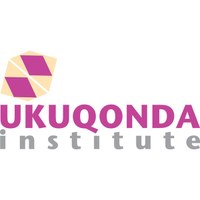The Ukuqonda Institute was founded in August 2006 as a regrouping and consolidation of ongoing work within the Centre for Productive Education (a Section 21 company), the Ukuqonda Initiative (UMAT) of the GM South Africa Foundation, and Mathematical Development (Pty) Ltd (a private commercial company). We are a not for profit company (Section 21) and further registered as a Public Benefit Organisation.
The vision of the Ukuqonda Institute is to promote excellence in the fields of Mathematics, Physical Science, Technology and Literacy education at all education levels in Southern Africa.
Ukuqonda, as its name implies (which means “to understand”), focuses strongly on learning with conceptual understanding and the development of key concepts, rather than (only) preparing learners for tests and examinations. In practical terms this means engagement of learners in meaningful tasks which provide them with opportunities to make sense of subject content and to provide space for own thinking. We actively pursue ways of developing responsibility for own learning, building self-reliance, insisting on and allowing space for learners to take initiative.
The overarching perspective informing the vision of Ukuqonda is that learning should provide for sense making, the promotion of conceptual understanding and development of valuable know-how and strategic skills." "The Ukuqonda Institute primarily focuses on the following areas in basic and higher education where impact is required:
- the General Education and Training (GET) Phase and Further Education and Training (FET) Phase
- one-year residential post matric (grade 12) bridging programme between FET and Tertiary Education
- national certificates in Engineering taking post matric (grade 12) learners up to N2 level and N5 Mathematics
- academic support to first year university students in the sciences and engineering faculties, with a major focus on developing problem solving skills
Directors: T Kgatlhanye, E Lampen, M Mangena, M Vosloo, L Masigo, S Maoto, N Cingo (chairperson), PG Human (managing)
The Ukuqonda Institute follows a solution driven, four-pronged approach to impact on teaching and learning:
- Direct engagement with selected learners outside normal school time, by means of Saturday classes, self-study programmes and vacation schools, at the one-year residential programme or by providing support to university students.
- Engagement with educators with the intention of benefiting all learners in the schools where they teach. This aim is to develop conceptual understanding and didactical skills for especially the threshold concepts within the different phases across the curriculum.
- Development and dissemination of high-quality learning materials. In collaboration with the Sasol-Inzalo Foundation and the Department of Basic Education (DBE), the Ukuqonda Institute has developed textbooks, workbooks and teacher manuals for Mathematics (grade 4 to 9), Technology (grade 7 to 9), Technical Mathematics (grade 10) and Technical Science (grade 10).
- Professional development through intensive in-service training and professional support of subject advisors and educators. In 2014 and 2017 Ukuqonda provided intensive residential training to Grade 4 to 9 Mathematics and grade 7 to 9 Technology subject advisors across all 9 provinces.
Governance
The Ukuqonda Institute is governed by a Board of Trustees, appointed in terms of the relevant legislation pertaining to Section 21 not-for-profit companies, and the Articles of Association by which the Ukuqonda Institute was founded. Current Board of Trustees are:
- Dr Ndumiso Cingo, CSIR
- Dr Mosibudi Mangena
- Dr Marietjie Vosloo, DataSense Consulting
- Tuni Kgatlhanye, Impala Plats (past student 2005)Dr Satsope Maoto, University of Limpopo
- Dr Erna Lampen, University of Stellenbosch
- Lebogang Masigo, Rand Water(past student 2004)
Website
Contact Person
Andrew Hofmeyr
andrewh@ukuqonda.org.za

